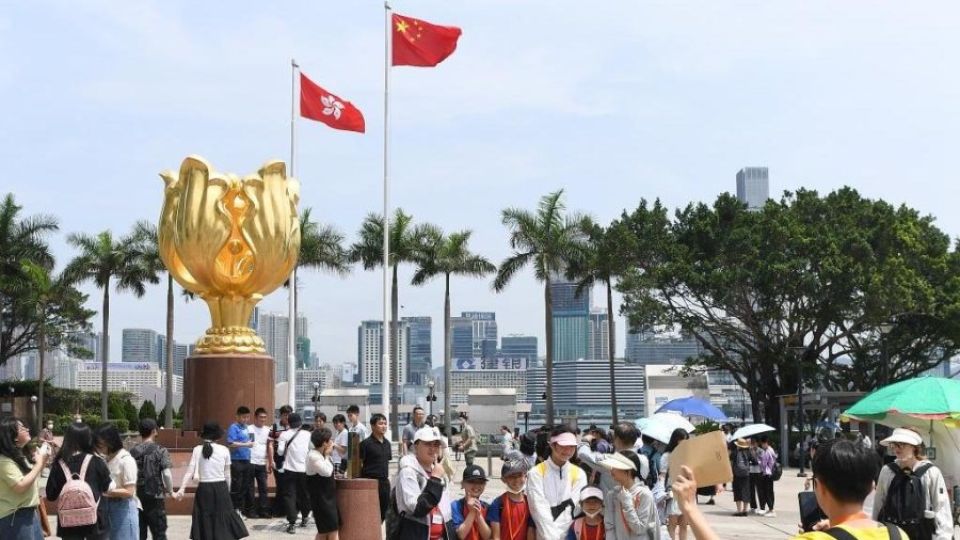August 14, 2023
BEIJING – Financial Secretary Paul Chan Mo-po said Sunday the Hong Kong Special Administrative Region must beef up its competitiveness and appeal although tourist numbers are going up.
Writing in his Sunday blog, he noted that the spending habits among Chinese mainland tourists have changed with “the young demographic now seeking cultural experiences, art exhibitions and large-scale concerts” when visiting Hong Kong.
On the other hand, the proportion of visitors, whose primary purpose was to shop in the city before the pandemic, has declined, according to a survey by the Hong Kong Tourism Board.
But, Chan notes that the changing habits bring new opportunities too. “Guests now prioritize the distinctive features, creativity, quality, and the user experience of products and services, and it’s crucial for us to seize this opportunity.”
We must drive the development of Hong Kong’s tourism industry toward diversification, high value-added, and sustainability … In particular, large-scale events, international conferences and exhibitions play a crucial role in attracting high-value visitors, which is also a fiercely competitive segment in tourism worldwide.
Paul Chan Mo-po, Financial Secretary of the HKSAR government
The SAR welcomed some 3.6 million visitors last month, averaging about 116,000 daily, marking a month-on-month increase of above 30 percent. The mainland and Southeast Asian markets have shown a swift recovery, with mainland tourist numbers rebounding to about 70 percent of pre-pandemic levels.
The number of visitors from Southeast Asian countries, like the Philippines, has exceeded pre-pandemic figures, while the number of Thai tourists has surpassed 90 percent, according to Chan.
ALSO READ: Hong Kong ‘still appealing’ to mainland tourists
Private consumption and the tourism industry remained the main drivers of economic growth in the second half of the year. Following an increase of 13 percent in private consumption expenditure in the first quarter, it continued to grow by 8.2 percent year-on-year in the second quarter, he noted.
“The performance of Hong Kong’s retail and catering industries was also improving in the second quarter,” said Chan. Retail sales and restaurant receipts surged by 17.6 percent and 24.3 percent year-on-year, respectively, recovering to more than 85 percent and 95 percent of the levels seen in the same period of 2018.
“We must drive the development of Hong Kong’s tourism industry toward diversification, high value-added, and sustainability,” Chan said. “In particular, large-scale events, international conferences and exhibitions play a crucial role in attracting high-value visitors, which is also a fiercely competitive segment in tourism worldwide.”
The 2023-24 Budget had allocated HK$100 million ($12.8 million) to stage high-profile events aimed at enhancing Hong Kong’s international image, Chan said.
In addition, more than HK$250 million was allocated to the Hong Kong Tourism Board for organizing various large-scale tourism events, including the upcoming Hong Kong Wine & Dine Festival 2023 and Hong Kong Cyclothon. Furthermore, resources are being deployed to attract a diverse range of international conferences and exhibitions from different sectors, solidifying Hong Kong’s position as the destination for meetings, incentives, conferences and exhibitions (MICE) tourism in the region, Chan said.
“In the short term, we must collaborate with various industries to revitalize Hong Kong’s night market, further consolidating economic sectors in the process of recovery and maintaining its momentum. In the medium-to-long term, the government aims to make innovation and technology a significant engine driving high-quality economic growth,” he added.
In May, Hong Kong began consultation research on the construction of an artificial intelligence supercomputing center and its operational models. The exercise is expected to be completed this year.


